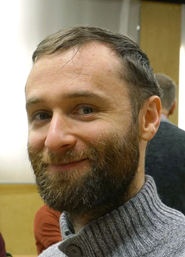
Researcher & teacher. TAIGA co-director
Primary focus: Anxiety-Sensitive Artificial Intelligence
General interests: simulation, responsible AI, pedagogy and transdisciplinarity
I am fascinated by the philosophical question of understanding what is intelligence, which I explore under the spectrum of artificial intelligence: how can one create features of intelligence in artificial systems? What does it say about the concept of intelligence?
As a practical implementation of this interest, most of my research revolved on producing accurate models of cognitive systems as we know them from psychology: cultures, values, norms, needs, networks, planning, cognitive workload etc. Recently my research interest has been dedicated to develop the concept of AnxSAI (Anxiety-Sensitive Artificial Intelligence), i.e. systems that can replicate or account for (human) anxiety --How to make such systems (technically, accurately, responsibly, etc)? What are their impact on society (risks, benefits, perceptions)? This are the questions I foster as a researcher and by gathering stakeholders, researchers and students around this question through discussions, events, and projects. If anxiety-sensitive AI is of your interest, please feel invited to contact me.
I have been applying this knowledge for building social simulations (e.g. for helping policy-makers to mitigate the COVID crisis), and problem-solving (e.g. generating itineraries that can minimize user's anxiety, giving robots the potential to understand how they overload their operators). Whereas I have a computing-science background (and admitedly like to program), my scientific methods are fundamentally interdisciplinary, with a particular emphasis on establishing my models in strong psychology and sociology grounds and study of social consequences. Half of my students arise from cognitive sciences and psychology and I have the honor to be a co-director of TAIGA, Umeå's transdisciplinary center on AI for Good, leading the Social AI focus area.
Beside this direct scientific interest, I have a strong interest on making AI for social good a practical reality. In addition to extensive implementation experience on social simulation (e.g. ASSOCC project), multiagent systems, robotics, and planning, both in industry and academia, I am developping vision-broadening pedagogy methods (psychology-grounded AI ethics pedagogy, interdisciplinary research pedagogy) and have been studying the prospects of future AI-powered technologies on the fishing and energy-management sectors.
Affiliate member of the CRAFT Research Lab